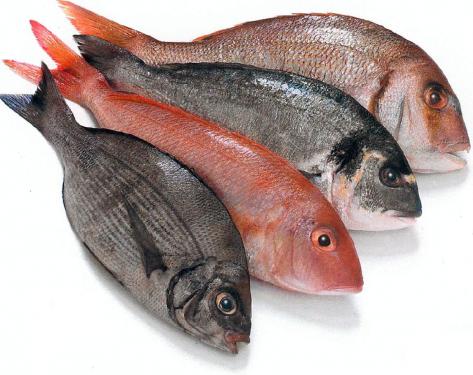
How much protein do you need to grow muscle and how to tackle vitamin D deficiency

How much protein is needed to grow muscle and stay healthy?
With so much information on the internet, in books and in magazines about protein, it can be difficult to know exactly how much protein you need. It is a question many people starting out in bodybuilding for example find themselves asking without really knowing the true answer. Here we look at the studies surrounding this primary macronutrient and the basic 'schools of thought' so you can decide the actual amount you need in your diet.
The International Olympic Committee Consensus on Sports Nutrition states 'the importance of protein for athletes has long been recognized' (Ron. J.M. et al, 2004). This is because protein is called the building blocks of the body as it consists of combinations of structures (amino acids) that combine in various ways to make muscles, bone, tendons and other tissues. Research also shows that athletes need more protein compared to those who lead a sedentary lifestyle, primarily to help repair and rebuild muscle that is broken down during exercise and to help optimize carbohydrate storage in the form of glycogen.
According to The International Olympic Committee Consensus on Sports Nutrition, to support a strength or speed based workout routine, athletes require 1.7g of protein per kg of bodyweight per day. So an athlete weighing 100kg who regularly lifts weights would need 170g of protein per day (usually broken down into 6 meals spaced roughly 2 hours apart throughout the day, each containing 28.33g of protein).
However more recently experts have been looking into the protein requirements of those undertaking cardiovascular training as well and in a study conducted at McMaster University in Ontario, Canada, it was suggested 'that endurance athletes require a greater (or equal) intake of protein than strength athletes to prevent protein catabolism during exercise.' (M. A. Tarnopolsky et al, 1999). Put simply, this means because of the demands extreme endurance training puts on the body, often it needs more protein to prevent it from entering into a catabolic state (i.e. muscles begin to breakdown, the immune system is badly affected and injuries are more likely to occur).
So whether your performing weight training, cardio or doing both, it's important to pay attention to your protein consumption and at least come close to the 1.7g of protein per kg of bodyweight per day as recommended by The International Olympic Committee Consensus on Sports Nutrition.
You can acquire protein from various sources and we would always recommend obtaining it from food primarily such as red meat, fish and eggs. If you find that you are struggling to obtain the amount you require, protein supplements can then also be used to top up your diet.
Donald Russell, Riverford and Farmison sell excellent high protein food which you can order online at competitive prices. Donald Russell run Butcher's Specials and have a Winter Sale with some huge discounts across their ranges. You can also buy your protein rich groceries online with Sainsbury's, ASDA and Tesco.Good high protein food sources for a healthy diet
Eggs and Cheese- Egg / Liquid egg whites (such as Myprotein's Liquid Egg Whites)
- Cottage cheese
- Skinless chicken breast or cutlets
- Lean ground turkey
- Lean ground beef
- Top round steak
- Pork tenderloin
- Flounder
- Cod
- Pollock
- Salmon
- Canned tuna in water
- Wild sea bass
- Wild swordfish
Vitamin D deficiency symptoms
During the winter you are more susceptible to becoming ill which can affect your training and fitness goals. Recently scientists have discovered this could be because of the lack of exposure to ultraviolet sunlight which means our bodies are unable to synthesise vitamin D, a process which is integral to maintaining a healthy immune system.
Sources of vitamin D to cure a vitamin D deficiency
Sports Scientist Ross Edgley explains; 'The summer months are ideal for filling up on green vegetables and absorbing vitamin D from the sun. This build up of vitamin D has numerous health benefits but the main one is a robust immune system. Unfortunately, winter time doesn't provide the necessary sunshine for adequate vitamin D absorption so supplementation is the answer for many people. Those that are particularly susceptible to infection should seriously consider it. Like everything, prevention is better than cure and it takes the body at least six weeks to build up good levels of vitamin D for a healthy immune system.'
Your body has what are called T-cells that work together to find and destroy anything foreign that enters the body (such as bad bacteria or a virus.) Recently scientists at the University of Copenhagen discovered that vitamin D plays a crucial role in activating these T-cells and triggers them to find and destroy foreign pathogens such as clumps of bacteria or viruses. So without sufficient vitamin D, it's believed the T-cells remain dormant and therefore open to the possibility of threat.
As Professor Carsten Geisler (Department of International Health, Immunology and Microbiology) explains, 'When a T-cell is exposed to a foreign pathogen, it extends a signalling device or 'antenna' known as a vitamin D receptor, with which it searches for vitamin D. This means that the T-cell must have vitamin D or activation of the cell will cease. If the T-cells cannot find enough vitamin D in the blood, they won't even begin to mobilise.'
Vitamin D supplements in the UK to buy online